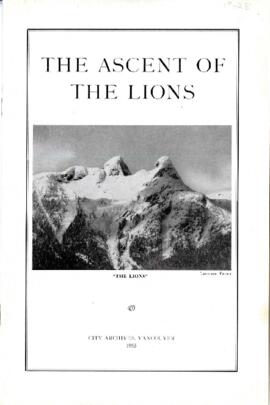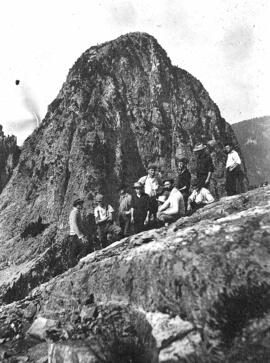Climbing the Lions in an "old suit and pair of shoes that were no longer decent enough for ordinary wear," and being the first recorded climber of the East Lion gives some clue as to the contents of this article.
Written by John Latta, it describes a six-day expedition in 1905 of him and his brothers William and Robert as they decided to climb the Lions. They were all aged around twenty and had no experience, making them either brave or foolhardy — or both. They were not the first known climbers of the Western Lion, but they were recorded as the first to climb the Eastern Lion.


